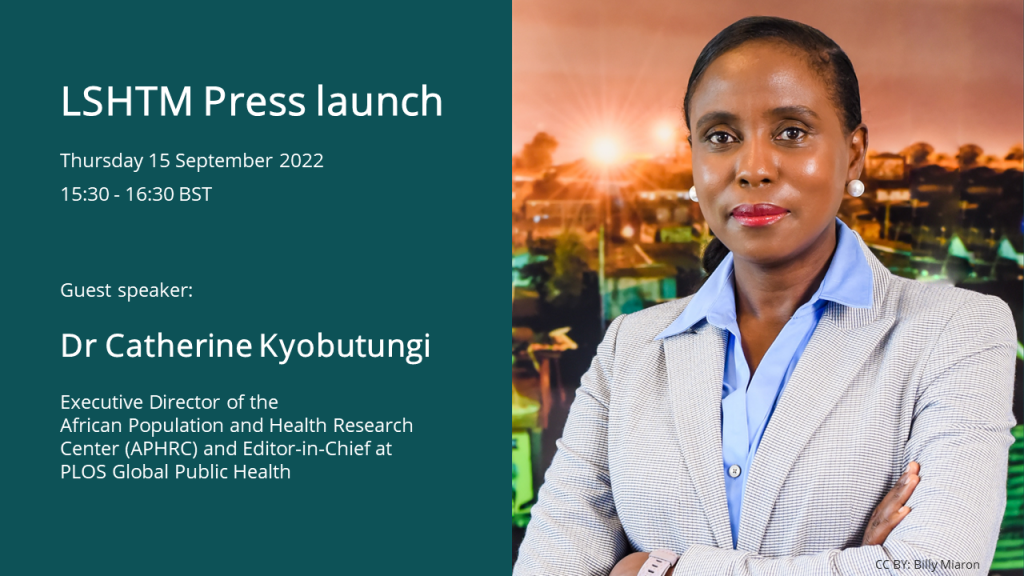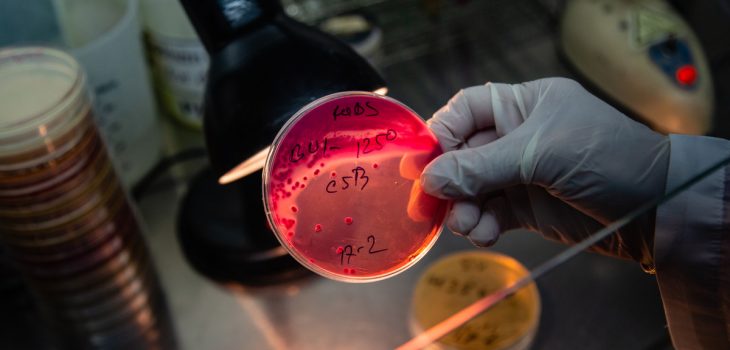For those of you who missed the launch of the LSHTM Press last Thursday, here’s a brief account of the online event that marked the beginning of a new chapter in open access academic publishing at LSHTM.

The afternoon event gathered a huge amount of interest from across the globe and the excitement was apparent in the surge of social media activities surrounding one of our guest speakers in the hours preceding the launch. The speakers were to reflect on challenges around equity in academic publishing, as well as giving an introduction to the publishing platform itself.
Opening remarks came from Liam Smeeth, Director of LSHTM, highlighting the crucial role open access publishing had on the international response to the COVID-19 pandemic. Liam recounted the remarks of Nick Hillman, senior advisor to the UK government who mentioned that, even within the government sector, it is often the case that those seeking information would give up in their quest if a paywall is encountered. He stressed the importance of giving access to information without barriers—one of the key aims of LSHTM Press—before handing over to David Conway, chair of the launch event.
David Conway, Professor of Biology at LSHTM, is the chairman of the LSHTM Press steering committee, a group that includes both students and staff from across the community. Without further ado, he initiated the official launch of the LSHTM Press website (https://press.lshtm.ac.uk) and the announcement of its launch publication, Community Ear & Hearing Health, from the International Centre for Evidence in Disability (ICED). As a journal aimed at practitioners and not just academics, David emphasised how the launch publication reflected the purpose and mission of LSHTM, by providing information and the latest advice to communities active in global healthcare. By supporting the creation of diverse editorial boards and contributors, David furthered the aim of LSHTM Press to develop strong national and global partnerships. He was delighted to introduce the keynote speaker of the day, Dr Catherine Kyobutungi, Director of the African Population and Health Research Center (APHRC) and Editor-in-Chief at PLOS Global Public Health.

Catherine’s presentation was both enlightening and inspiring, relating the experiences she encountered in developing the shared vision which became PLOS Global Public Health. She defined the process as the first steps in a long but important journey—a journey of a thousand miles. Academic publishing is dominated, for many across the globe, by foreign privilege, where lack of diversity and the lack of affordability permeates throughout the entire system. Within this environment, a pattern emerges: authors from lower and middle-income countries are stuck in the middle for years, with huge implications on careers. The same goes for editorial boards, which are predominantly dominated by men from high-income countries. So as the journey gathered momentum, the foundations of PLOS Global Public Health came into being with a mission to address the deeply entrenched inequities in global health; with equity, diversity and inclusion (EDI) core to the journal’s ongoing mission. The avalanche of submissions, from 111 countries so far, led to the expansion of the editorial board to include members from across the globe, but the journey is not yet complete. Language continues to be a barrier, especially for French and Arabic-speaking African researchers. There was an overwhelming appreciation for the launch of such a journal, but EDI requires intentionality and we have to be ready to entertain those uncomfortable but important conversations.
EDI was also the focus of the next speaker, Anne Mills, Deputy Director and Provost of LSHTM, and Professor of Health Economics and Policy. In giving a reflection on LSHTM Press in relation to LSHTM values and strategy, Anne accentuated the aim of embedding EDI in all that we do. She acknowledged the advantage of institutions such as LSHTM, along with the advantage of language, where it is incumbent on us to recognise those advantages.
The final speaker was Paddy Ricard, editor of the launch publication, with a fascinating look into the aspirations and vision of the first journal to be published by LSHTM Press. With a focus on articles with a practical impact rather than research, Community Ear & Hearing Health started life in 2004 and has continued in raising awareness of ear and hearing health, and providing knowledge and skills across the globe. Lower and middle-income countries have the highest proportion of people with issues in ear and hearing health. Along with a severe shortage of specialists, the promotion of ear and hearing health in an accessible format is therefore paramount. It was interesting to see that, in the increasingly digital environment of scholarly publishing, paper editions play a huge role in the dissemination of vital information to areas where internet access is unreliable. This was a point that was reinforced by Catherine at the Q&A session that followed.
Publishing, as Catherine pointed out, is a field that is crowded and yet inaccessible to many across the globe. It is important to consider which community you are serving. There is a need to create platforms for the voices of many, not just for academics. David raised the point that there are many existing LSHTM journals that would benefit from shifting to a non-commercial publishing platform like LSHTM Press, but it’s important to remember that LSHTM Press is not just an outlet for LSHTM researchers.
Anyone interested in starting a new journal or to transition to LSHTM Press should contact them via the new website (https://press.lshtm.ac.uk), as they are very happy to talk to anyone with ideas beyond traditional science.







